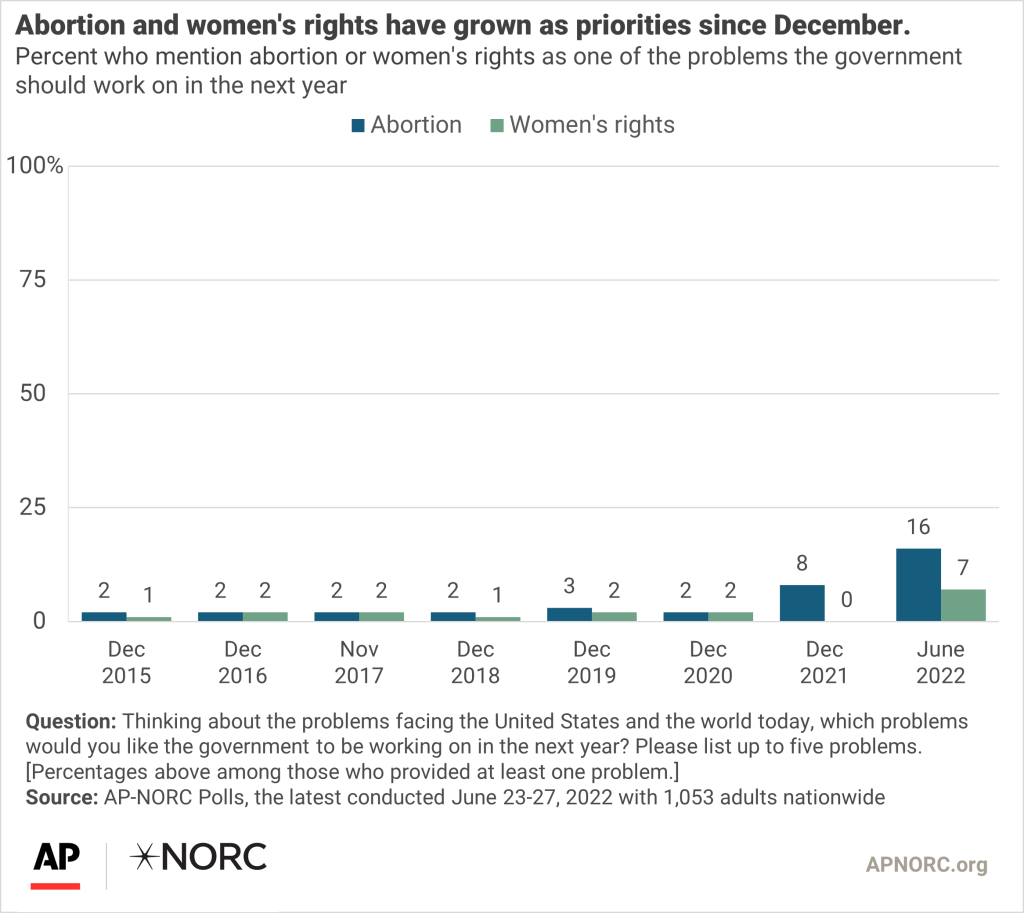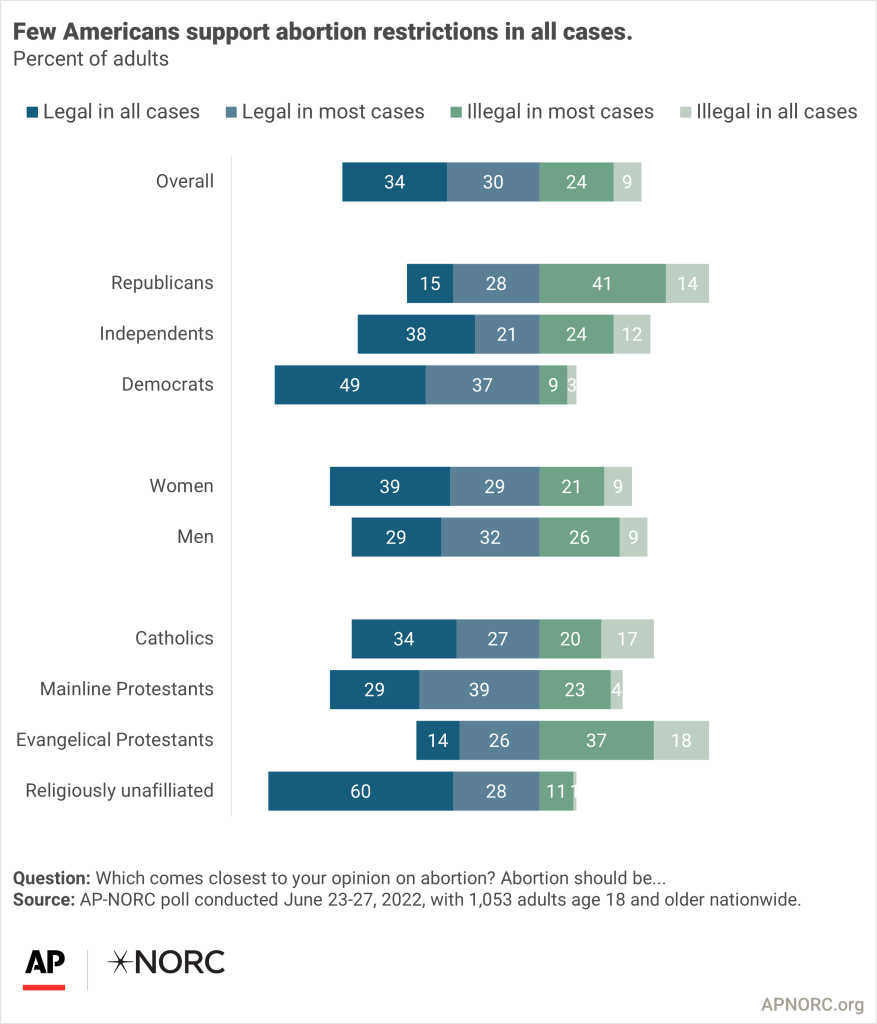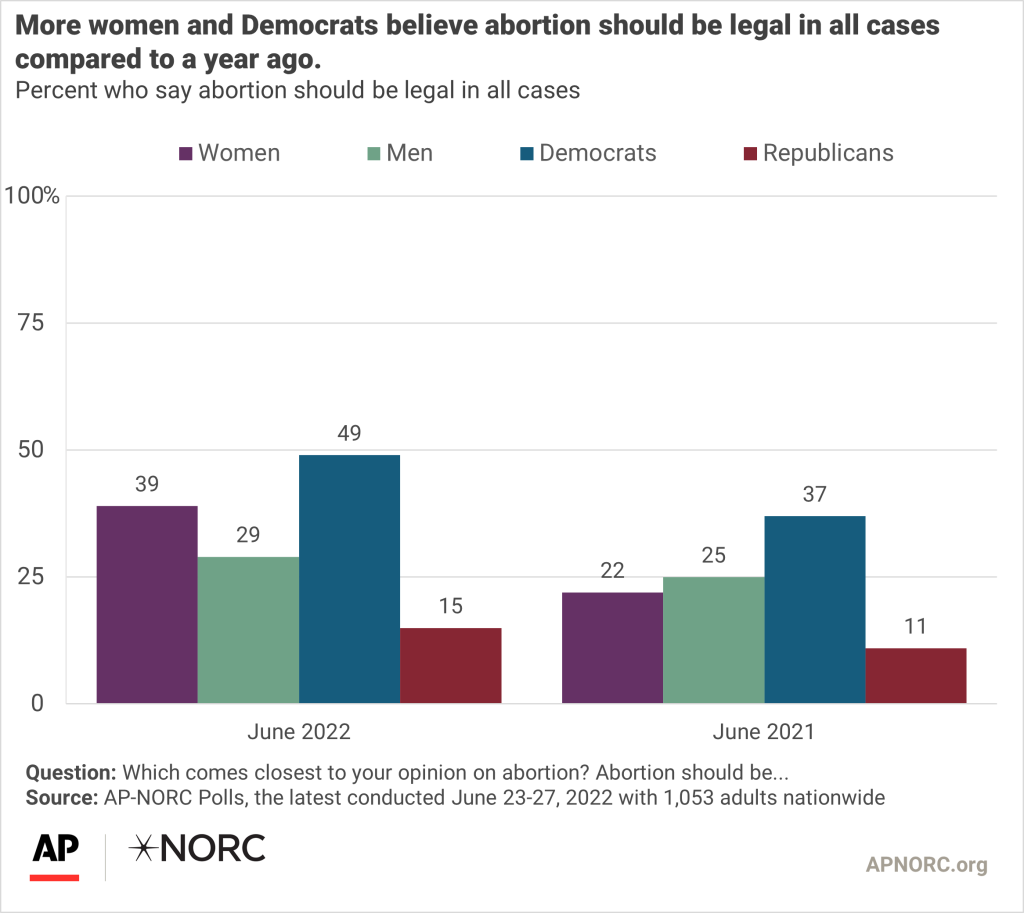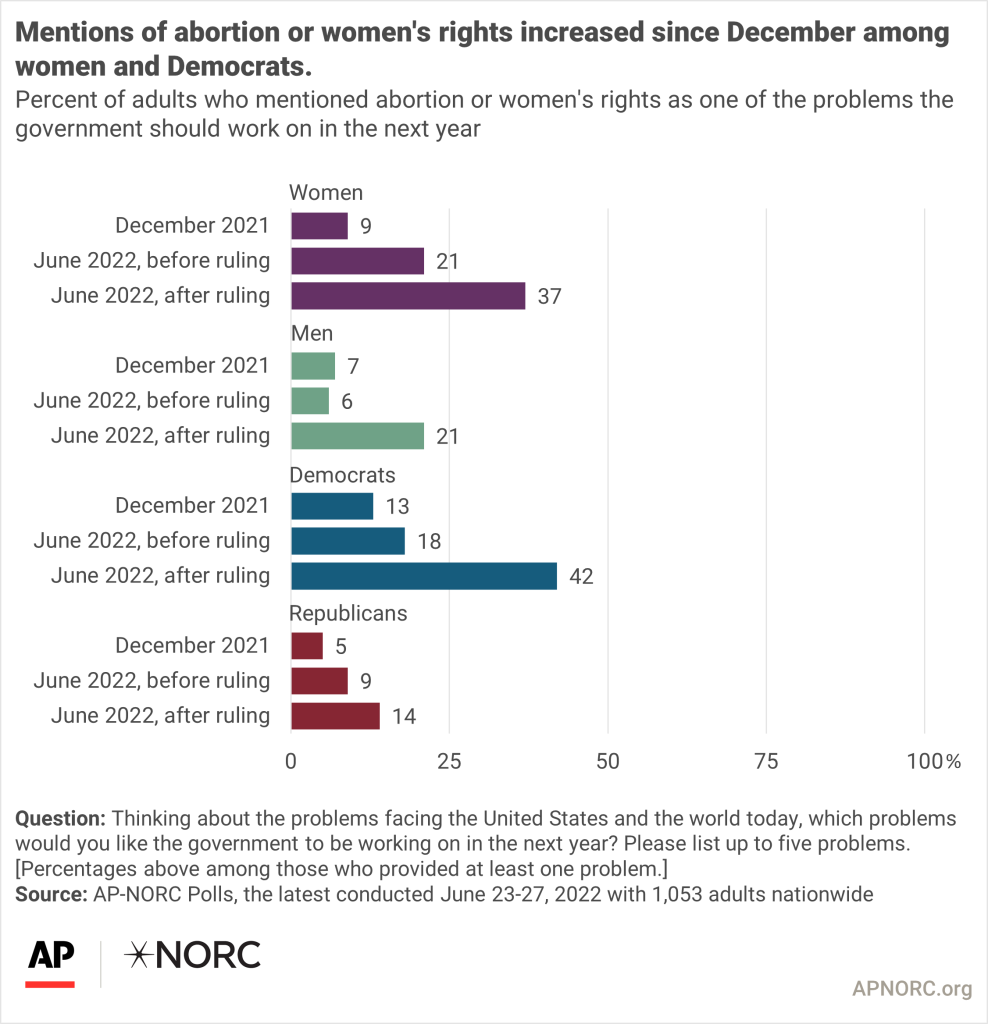
July 1, 2022
On June 24, 2022, the Supreme Court overturned Roe v. Wade, eliminating the constitutional right to an abortion after almost 50 years and leaving each state to set its own abortion laws. In the wake of the decision, more Americans are citing abortion or women’s rights as priority issues for the federal government to address than in any year since 2015. And more women and Democrats believe abortion should be legal in all cases compared to a year ago.
To explore the public’s agenda for the coming year, each December since 2015 The Associated Press-NORC Center for Public Affairs Research conducted a poll in which respondents provided up to five volunteered issues that they believe should be priorities for the federal government. This year, The AP-NORC Center also asked the public at the half-way mark what top five issues should be priorities for the federal government over the next year.
In previous years, abortion did not rise to a particularly high level of concern among most Americans. However, in the wake of the leaked draft opinion that suggested the U.S. Supreme Court would overturn the Roe v. Wade decision and the release of the actual decision, 22% of Americans cited abortion or women’s rights as one of their top five priorities. That’s nearly triple the amount who cited these issues as a top concern in the December 2021 AP-NORC poll.
The court’s decision in the case of Dobbs v. Jackson Women’s Health Organization held that the Constitution does not confer any right to abortion, and therefore overruled both the Roe v. Wade (1973) and Planned Parenthood v. Casey (1992) rulings. The decision to remove women’s constitutional protections for abortion was announced while the survey was in the field. Forty-three percent of the interviews were conducted before the announcement and 57% afterward. Abortion or women’s rights were mentioned as a top issue among 13% of those taking the survey before the announcement and that climbed to 30% among those taking the survey after the announcement.1
Still, more than 7 in 10 Americans did not mention either abortion or women’s rights as one of their top five priorities.

Just 9% of Americans believe abortion should be illegal in all cases and nearly four times as many (34%) think it should be legal in all cases. Still, that leaves just over half of the country in the middle, with 30% who think it should be legal in most, but not all cases and 24% who think it should be illegal in most cases. Democrats and the religiously unaffiliated are more likely to support legal abortion in all or most cases. Women are also more likely than men to say abortion should be legal in all cases.
The poll found that abortion was mentioned as a top issue among advocates on both sides of the debate – 27% of those who believe abortion should be legal in all cases said abortion issues should be a priority and 22% of those who believe it should be illegal in all cases said the same. However, those who mentioned women’s rights as a top issue almost exclusively believe abortion should be legal in all or most cases.

Support for legalizing abortion in all cases has increased significantly over the last year. In June 2021, 23% said abortion should be legal in all cases. That increased to 32% in May 2022 and 34% in June 2022. The biggest changes are among women and Democrats. There has been no change among men or Republicans.

The poll found that the percentage of women and Democrats prioritizing the issue was already higher in interviews conducted prior to the court ruling compared to December 2021. Men also mentioned the issue more compared to December, but only after the court issued its ruling.

The nationwide poll was conducted June 23-27, 2022 using the AmeriSpeak® Panel, the probability-based panel of NORC at the University of Chicago. Online and telephone interviews using landlines and cell phones were conducted with 1,053 adults. The margin of sampling error is +/- 4.0 percentage points.
- Suggested Citation: AP-NORC Center for Public Affairs Research. (July 2022). “In the wake of the Dobbs ruling, more Americans are citing abortion or women’s rights as priority issues” https://apnorc.org/projects/in-the-wake-of-the-dobbs-ruling-more-americans-are-citing-abortion-or-womens-rights-as-priority-issues/
1The increase in mentions of these issues before and after the announcement is significant even controlling for respondent demographics and partisanship – factors that are related to how quickly people respond to surveys once invited.







